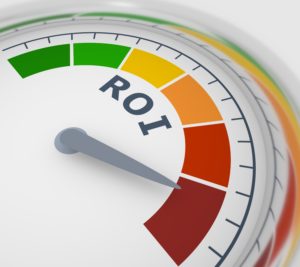Fuel prices are high these days with many people expecting them to keep rising. Is it smart to lock in prices now to avoid paying higher costs in the future, or should you ride it out? Managing price fluctuations is an important part of your risk management process. Learn more about price risk management and how to decide whether to lock in your price point now or not!
What Is Price Risk?
Price risk describes the chance that costs will fluctuate and increase in value. Businesses and investors can also face price risk for many other commodities ranging from gold and real estate to packing supplies and raw materials.
It’s always possible for fuel prices to change in either direction. We’ve all seen fuel prices go higher as well as drop dramatically at various times. Many analysts are currently forecasting prices to keep rising. However, this doesn’t mean that your company needs to use price risk management techniques right away. Explore the following considerations before making any decisions.
Assess Your Fuel Price Risk For Higher Prices
Begin by determining your fuel price risk exposure to higher prices. If you bid on a project at a fixed price and then fuel costs rise, your company could face risk due to higher fuel prices. If your budgets are susceptible to changes in fuel costs, you should consider locking fuel prices to protect your budget.
However, many businesses include a fuel surcharge in their final customer price. Whether you list your surcharge as a line item expense or simply raise your overall fees, this standard business decision passes on increased fuel costs to your customers. An efficient fuel surcharge will pass price risks from your firm and transfer them to your customer. Locking fuel prices in this scenario could add price risk to your company that wouldn’t otherwise exist.
Assess Your Fuel Price Risk For Lower Prices
You also need to consider your fuel price risk exposure if fuel prices decline. The popular consensus is that fuel prices will keep going up. There’s no guarantee that this will happen, though. You always face some downside price risk, even if fuel costs are driven by other events. Remember the fuel price dropped dramatically during the early COVID-19 lockdowns. Prices fell sharply as demand disappeared. What would have happened to your company in 2020 if you’d locked in a 2019 fuel price? You shouldn’t lock in prices if a sharp price drop would hurt your operations.
Assess Your Motives
Finally, consider your motivation for locking in fuel prices. You should only lock fuel prices if this decision will reduce your risk no matter how prices change. If you feel pressured to lock prices because you worry prices will increase, we recommend doing more research into the situation.
Price management tools are a “zero-sum game.” When you lock in a price simply because you believe prices will rise, your company is essentially making a bet that fuel prices will go up. For this gamble to work, someone else needs to make an opposing bet. Our clients include food distributors, logistics providers, school systems, manufacturers, and shipping companies. We don’t encourage you to go toe-to-toe with professional traders. Leave gambling to the uninformed or the foolish, and only lock prices when it reduces your risk.
Learn More About Fuel Price Risk Management
We know fuel is a necessity for your business. Changing fuel costs can be frustrating, which is why we’re offering free resources to help you explore your risk management options. Keep an eye out for further information on how your company can use fuel price risk management tools. You can always contact us at info@diversified.energy with any questions in the meantime!








